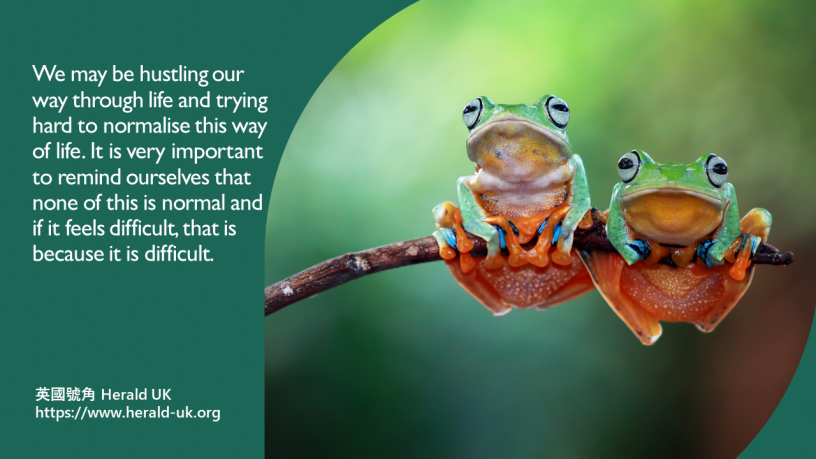Wynne C
It is coming up to the second anniversary of coronavirus sweeping the country and various restrictions being put in place. Aren’t you tired of hearing the words “COVID”, “pandemic”, “face mask”, “vaccine”, “booster”, “isolate”, “Delta”, “Omicron” and whatever Greek alphabet is used to name the next coronavirus variant? It is strange how just two years ago these words were not part of our day-to-day vocabulary, yet now they are mentioned in every conversation.
The pandemic has affected people from all ages and walks of life. Many of us may have experienced the loss of loved ones, illness, loss of jobs, loss of opportunities to celebrate at weddings, graduations and grieve at funerals, loss of a normal educational experience for students, loss of human company due to self-isolation and loss of freedom to travel and reunite with loved ones. On top of all these losses, we are faced with inconsistent messaging about restrictions and alleged violations of restrictions by those we trust to keep us safe.
The general theme of loss permeates our communities, and we are frustrated by how little we are in control of it all. This pushes us to feel more and more mentally and physically exhausted each day as we simply do not know when all of this will come to an end. We may even wonder whether there is any good in being vaccinated or sticking to the rules. Some of us may be frightened of leaving our homes. This is what we call pandemic fatigue. WHO describes pandemic fatigue as a natural and expected reaction to sustained and unresolved adversity in people’s lives.
If we are not careful in protecting our minds from pandemic fatigue, we may slip into burnout. Examples of burnout are being tired even when we have had enough sleep, losing our temper easily with loved ones, feeling low in mood, crippling anxiety about catching the virus and losing motivation and hope for the future.
In an article I wrote a year ago, I talked about resilience. It is the capacity to adapt well in the face of difficulties. I likened resilience to water in a bucket. This bucket is being tipped over and water is drained away as the pandemic continues, and before you know it, the bucket is empty. The water is no more. Our resilience reaches an all-time low. We lose the ability to cope with everyday stresses that we would usually have no problem dealing with.
Here are a few things we can do to fight pandemic fatigue and loss of resilience:
- Acknowledge how hard it is
We may be hustling our way through life and trying hard to normalise this way of life. It is very important to remind ourselves that none of this is normal and if it feels difficult, that is because it is difficult.
- Prioritise self-care
We need to ask ourselves what we have control of in these difficult times. Simple things like sleeping early, having a nice warm bath, focusing on a hobby, going for a walk for some fresh air, taking some time off work (even if you don’t necessarily have any holidays planned), meeting friends and having community go a long way. If you are a Christian, praying and spending time reading God’s Word is comforting and energising!
- Take a break from the news and social media
What we take in heavily influences how we think and feel. I remember working in A&E in the beginning of the pandemic and obsessively checking case figures and death tolls on the news. A kind colleague noticed how anxious this habit was making me and gently reminded me to take a break from the news. Social media is a powerful tool, but can also be a hotbed for fake news and toxicity. If you recognise that a certain social media app is causing more anger and unrest, give it a break and stop scrolling for a while.
- Ask for help if you need it
There is absolutely no shame in asking for help if you feel your mental health is taking a hit. There is so much good in allowing your raw and honest emotions to be heard by someone, whether it is a trusted friend, family or professional. Remember that you are never alone and there is always support available.
We do not know when this pandemic will end, nor do we know what the future will bring. What we do have control of is how we navigate life as we know it. Start being intentional about protecting your mental health, both for yourself and those you love!











